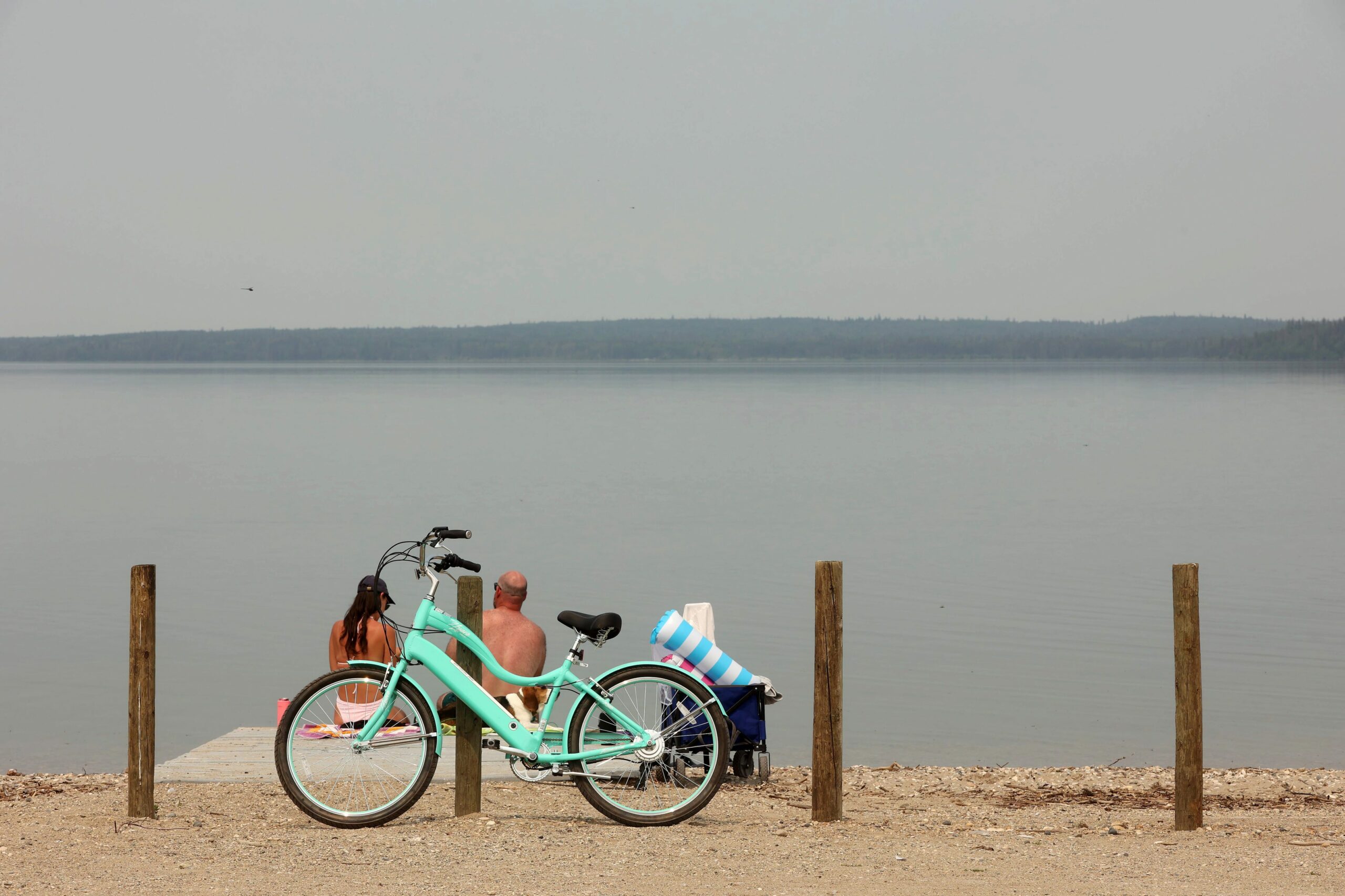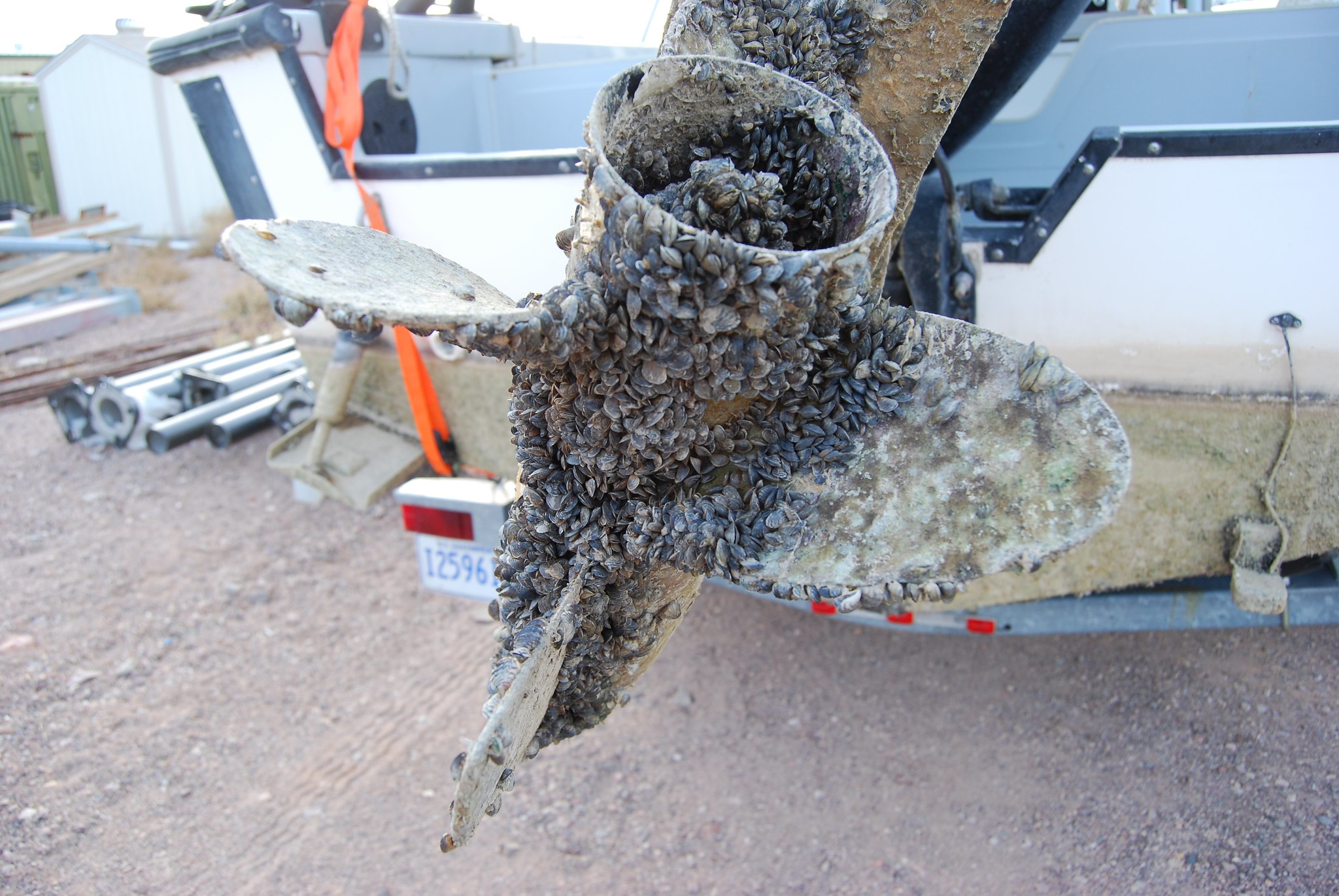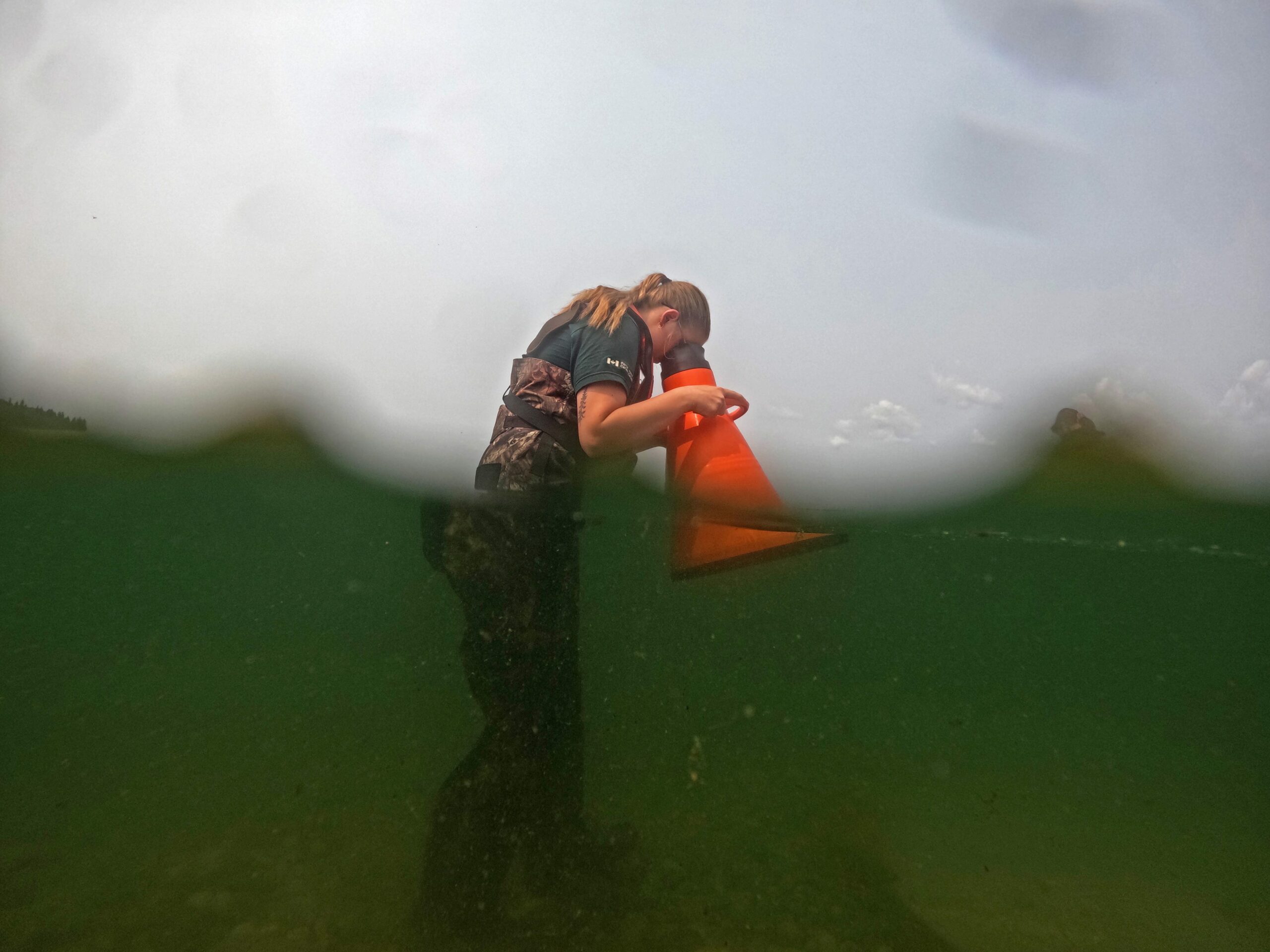
In a Nova Scotia research lab, the last hope for an ancient fish species
Racing against time, dwindling habitat and warming waters, scientists are trying to give this little-known...
There’s evidence of a “localized” zebra mussel infestation at Clear Lake’s main boat cove, Parks Canada announced on Friday. The race is on to contain the invasive species before it spreads throughout the lake — or to the Assiniboine River.
On July 17, Parks Canada snorkellers found one live mussel and an empty shell on a rock in the high-risk boat launch area of the lake, suggesting there’s “probably a localized infestation in Boat Cove,” Winnipeg South MP and Canada’s special advisor for water, Terry Duguid, said in an interview.
Water samples collected in the area between June 19 and 27 have also tested positive for zebra mussel DNA.
“This evidence shows zebra mussels are building a presence in Clear Lake,” Parks Canada said in a news release.
Clear Lake, in Manitoba’s Riding Mountain National Park, near the Saskatchewan border, is the westernmost water body in Canada to find signs of a mussel infestation.

So far, Parks staff believe the infestation is limited to Boat Cove, where they found an initial clump of 48 live mussels in November. Additional tests taken throughout the lake have come back negative, though that’s no guarantee the mussels have not spread, Duguid said. Mussel DNA is easier to detect in warmer weather.
“We’re taking measures to contain the infestation,” Duguid said.
Earlier this month, Parks Canada announced it would take steps to prevent the zebra mussels’ spread by installing underwater curtains from Boat Cove to the pier, isolating the likely area of infestation.
Duguid said the semi-permeable curtains, due to arrive next week, will act “like an underwater fence,” preventing larvae from spreading throughout the lake or into downstream water bodies, including the Little Saskatchewan and Assiniboine rivers.
Staff are also considering the use of potash — a Health Canada-approved pesticide treatment — to eradicate mussels in the affected area of the lake.


In a release, Parks Canada said the decision is “pending the results of further visual surveys and water sampling from other areas of the lake.”
“The important thing is that we seal off this portion of the lake, begin treatment options and try and prevent this infestation from spreading, because this is such a special place for Manitoba, for Canadians — and very important for tourism,” Duguid said. “We want to do everything in our power to protect the ecological integrity of this place.”
Duguid said nearby municipalities and First Nations are concerned about the impacts of further spread.
“It’s really important to take a preventative approach, not only for Clear Lake but for downstream communities, because we know very well the damage and harm that zebra mussels do, particularly to water infrastructure, throughout the country,” he added.
James Plewak, a former chief of Keeseekoowenin and a senior official with the Coalition of First Nations with Interests in Riding Mountain National Park, said his community was informed about the discovery earlier this week.
“My view is that I think Parks is doing the right thing,” Plewak said. “They’re addressing the issue before it gets too far out of hand; they’re erring on the side of caution.”
Local tourism operators say business has taken a hit since Parks Canada imposed a ban in May on all but three pre-approved watercraft. Recreational boats, including canoes, kayaks and paddleboards, are not permitted. Now they’re looking for more certainty from the federal agency as to what comes next for the region.
“Families and businesses in Clear Lake have borne an immense financial cost over the uncertainty this spring, with tourism bookings down 10 to 20 per cent in some cases,” Karly McRae, president of Lakehouse Properties in Wasagaming, said in a statement.
McRae said she was “disappointed to hear that zebra mussels have been found in Clear Lake, the crown jewel of Riding Mountain National Park,” though she cautioned it’s too early to know what the findings mean for the lake overall.
“We encourage Parks Canada to hold public meetings and reach out and work with the community to find creative solutions that will protect downstream waterways and allow Canadians to continue to access this incredible place,” McRae said.
Ashley Smith, who last summer opened Turtle Village, an Indigenous-owned camping and tourism experience in Wasagaming, said her business has seen a drop in visitors and increase in cancellations since the boat ban took effect.
She stressed the lake should not be shut down in the long term. Instead, she suggested ramping up preventative measures, including spreading “clean, drain, dry” messaging to boaters, increasing inspection stations and hiring more aquatic invasive species staff.
According to Duguid, tourism has been steady at Riding Mountain National Park despite the boat ban, with year-over-year visitation numbers slightly higher this summer.
Duguid said the ban, though “not a popular decision,” has likely helped minimize the impacts of an infestation.
“If we had not taken some of these measures, there would have been a wider infestation that we cannot contain,” he said.
The boat ban will remain in effect, Parks Canada said.
So far, two people have been charged under the Canada National Parks Act for paddleboarding on the lake during the closure, according to a Parks Canada statement.
Though Clear Lake falls under federal jurisdiction, Manitoba’s provincial government has stepped up efforts to protect downstream waterways from the invasive species, Natural Resources Minister Jamie Moses said on Friday.
The province recently released a strategy to manage aquatic invasive species, which Moses said goes hand in hand with a $500,000 increase to the associated budget.
The government also introduced a mobile inspection team this summer, which has been deployed throughout the province during the last couple of weeks.
Moses said the mobile unit has been “very successful in educating the public and making sure the public do their part, which is to clean, drain, dry — and when needed, decontaminate.”
Nine Manitoba water bodies, including Lake Manitoba, Lake Winnipeg, Red River and Nelson River, have been permanently infested with zebra mussels since the mollusks were first detected in the province in 2013.

Riding Mountain MLA Greg Nesbitt has called for the provincial government to test any streams leading out of Clear Lake for zebra mussels.
“All the streams that lead out of Clear Lake go into the Little Saskatchewan River and into the Assiniboine (River),” Nesbitt said on Friday.
“For the past year I’ve been calling on water testing and reporting to the public on the results of those tests. To date, I haven’t received any assurance from the minister that that’s being done.”
Moses confirmed the province will increase testing on downstream waterways.
“That’s really going to help us be able to stop the spread and take the necessary actions to keep all of our waterways as clean and as safe as possible.”
A joint federal-provincial checkstop for aquatic invasive species on the Manitoba-Ontario border earlier this month successfully searched nearly 400 boats being towed into the province. More than a quarter of the inspected boats had not been cleaned, drained and dried, or otherwise failed inspection, while five were found to be carrying zebra mussels.
— With files from Colin Slark
Get the inside scoop on The Narwhal’s environment and climate reporting by signing up for our free newsletter. On March 17, federal Conservative Leader Pierre Poilievre...
Continue reading
Racing against time, dwindling habitat and warming waters, scientists are trying to give this little-known...

From investigative reporting to stunning photography, we’ve been recognized with four 2024 CAJ Awards nods...

The Narwhal is expanding its reach on video platforms like YouTube and TikTok. First up?...
